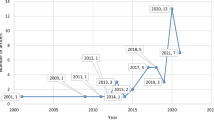Abstract
Researchers have indicated that the widespread adoption of digital technologies has changed the way we interact with each other and distinguishes digital natives from their older counterparts. Since young people are actively engaged in participatory cultures, this study aims to explore the linkages of aspects of literacy and principles of connected learning to their collective intelligence efficacy and civic engagement. With a sample of 304 Taiwanese college students, the findings suggest that there are three aspects of the expanded conception of literacy. While literacy as readers and information users, as well as literacy as authors and information creators are both linked to collective intelligence efficacy, the third aspect of critical literacy, which reflects an epistemological shift to cope with the participatory information environment, is linked to young people’s civic engagement, defined by political expression in various forms and by achieving social change in creative ways. Among the four principles of connected learning, however, the principle of fostering a sense of shared purpose mediated by new media and online communities is strongly associated with collected intelligence efficacy, defined by how young people perceive their capability for collaborating with others and making contributions. Overall, the findings provide empirical support for associations among notions/variables with broadened perspectives and re-conceptualizations that are insightful for understanding the Net generation’s new social practices.
Similar content being viewed by others
References
Alvermann, D. E. (2008). Why bother theorizing adolescents’ online literacies for classroom practice and research? Journal of Adolescent & Adult Literacy, 52(1), 8–19.
Bennett, W. L., Freelon, D., & Wells, C. (2010). Changing citizen identity and the rise of a participatory media culture. Handbook of research on civic engagement in youth, pp. 393–423.
Brown, C., Czerniewicz, L., & Noakes, T. (2016). Online content creation: Looking at students’ social media practices through a connected learning lens. Learning, Media and Technology, 41(1), 140–159.
Chen, S. Y., Kuo, H. Y. & Chang, H.-Y. (to appear). Information practices among Taiwanese writers and makers: An exploration on digital natives. Journal of Documentation.
Davies, J. (2012). Facework on facebook as a new literacy practice. Computers & Education, 59(1), 19–29.
Davis, K., & Fullerton, S. (2016). Connected learning in and after school: Exploring technology’s role in the learning experiences of diverse high school students. The Information Society, 32(2), 98–116.
Dawson, S., & Siemens, G. (2014). Analytics to literacies: The development of a learning analytics framework for multiliteracies assessment. The International Review of Research in Open and Distributed Learning, 15(4), 284–305.
Deng, L., Connelly, J., & Lau, M. (2016). Interest-driven digital practices of secondary students: Cases of connected learning. Learning, Culture and Social Interaction, 9, 45–54.
Gan, Y. C., & Zhu, Z. T. (2007). A learning framework for knowledge building and collective wisdom advancement in virtual learning communities. Educational Technology and Society, 10(1), 206–226.
Guo, J., Liu, Z., & Liu, Y. (2016). Key success factors for the launch of government social media platform: Identifying the formation mechanism of continuance intention. Computers in Human Behavior, 55, 750–763.
International Reading Association. (2009). New literacies and 21st-century technologies: A position statement of the International Reading Association. Newark, DE: International Reading Association.
Ito, M., Gutiérrez, K., Livingstone, S., Penuel, B., Rhodes, J., Salen, K., et al. (2013). Connected learning: An agenda for research and design. Pennsauken, NJ: BookBaby.
Ito, M., Soep, E., Kligler-Vilenchik, N., Shresthova, S., Gamber-Thompson, L., & Zimmerman, A. (2015). Learning connected civics: Narratives, practices, infrastructures. Curriculum Inquiry, 45(1), 10–29.
Jenkins, H., Purushotma, R., Weigel, M., Clinton, K., & Robison, A. J. (2009). Confronting the challenges of participatory culture: Media education for the 21st century. Cambridge, MA: Mit Press.
Kim, E.-M., & Yang, S. (2016). Internet literacy and digital natives’ civic engagement: Internet skill literacy or internet information literacy? Journal of Youth Studies, 19(4), 438–456.
Knobel, M., & Lankshear, C. (2014). Studying new literacies. Journal of Adolescent & Adult Literacy, 58(2), 97–101.
Ko, H. W., & Tai, J. H.-Y. (2010). Report on developing the framework of adult literacy indices. Taiwan: National Science Foundation.
Lankshear, C., & Knobel, M. (2006). New literacies: Everyday practices and classroom learning. Berkshire: Open University Press.
Lee, L., Chen, D.-T., Li, J.-Y., & Lin, T.-B. (2015). Understanding new media literacy: The development of a measuring instrument. Computers & Education, 85, 84–93.
Lévy, P. (2010). From social computing to reflexive collective intelligence: The IEML research program. Information Sciences, 180(1), 71–94.
Lin, T.-B., Li, J.-Y., Deng, F., & Lee, L. (2013). Understanding new media literacy: An explorative theoretical framework. Educational Technology & Society, 16(4), 160–170.
Maul, A., Penuel, W. R., Dadey, N., Gallagher, L. P., Podkul, T., & Proce, E. (2017). Measuring experiences of interest-related pursuits in connected learning. Educational Technology Research and Development, 65, 1–28.
Prensky, M. (2001). Digital natives, digital immigrants part 1. On the Horizon, 9(5), 1–6.
Rosen, L. D. (2010). Rewired: Understanding the iGeneration and the way they learn. New York: Palgrave Macmillan.
Soleša-Grijak, Đ., & Soleša, D. (2015). Survey of collective intelligence as interdisciplinary phenomenon. Hrvatski Časopis za Odgoj i Obrazovanje, 17(1), 243–260.
Spiranec, S., Banek Zorica, M., & Kos, D. (2016). Information literacy in participatory environments: The turn towards a Critical Literacy perspective. Journal of Documentation, 72(2), 247–264.
Stordy, P. (2015). Taxonomy of literacies. Journal of Documentation, 71(3), 456–476.
Street, B. (1984). Literacy in theory and practice. Cambridge: Cambridge University Press.
Tapscott, D. (2009). Grown up digital: How the net generation is changing your world. New York: McGraw-Hill.
Zembylas, M., & Vrasidas, C. (2005). Globalization, information and communication technologies, and the prospect of a ‘global village’: Promises of inclusion or electronic colonization? Journal of Curriculum Studies, 37(1), 65–83.
Acknowledgements
The author would like to thank the Ministry of Science and Technology of the Republic of China for financially supporting this research under Contract No. (MOST 104-2410-H-007-030-SS2).
Author information
Authors and Affiliations
Corresponding author
Rights and permissions
About this article
Cite this article
Chen, SY. Literacy and Connected Learning Within a Participatory Culture: Linkages to Collective Intelligence Efficacy and Civic Engagement. Asia-Pacific Edu Res 27, 167–175 (2018). https://doi.org/10.1007/s40299-018-0375-4
Published:
Issue Date:
DOI: https://doi.org/10.1007/s40299-018-0375-4




